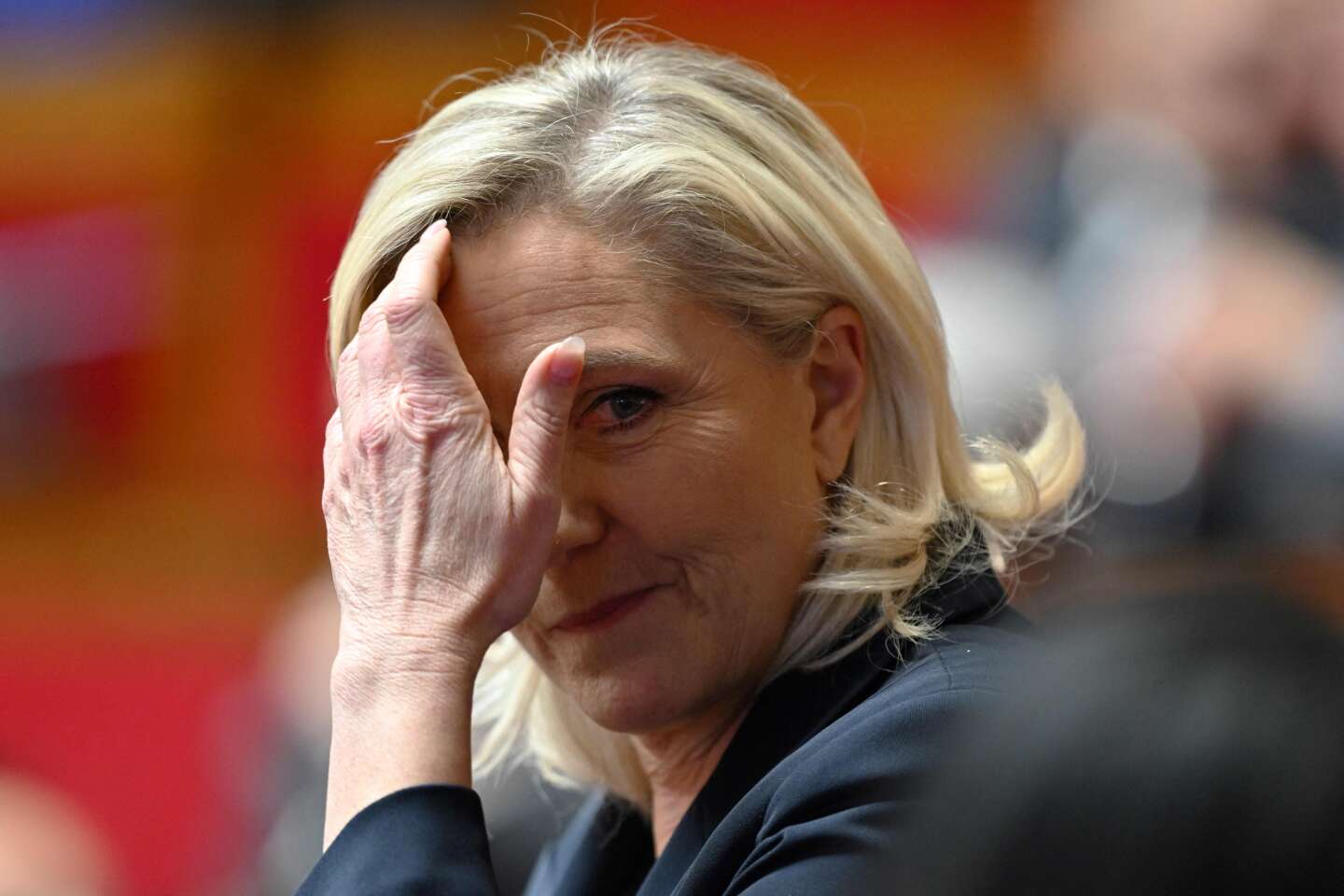


Survey after survey, the far right can measure the progress of the "normalization" undertaken by Marine Le Pen. According to the results of the annual barometer on the Rassemblement National's (RN) image, published on Thursday, December 7, by Le Monde and Franceinfo, two thresholds have just been crossed: For the first time, more people surveyed think that the RN, a party with xenophobic and authoritarian aims, does not represent a danger to democracy (45%) than the opposite (41%). Also the first time, more respondents considered Le Pen's party to be capable of participating in a government (43%) than as one that is always in opposition (39%). The change is all the more significant given that the survey is on questions that have been asked every year for almost 40 years by the Verian-Epoka poll.
As is the case in many European democracies afflicted by the rise of the far right, Le Pen has put herself in a position to exploit and co-opt the fears associated with globalization: The fears of social déclassement, insecurity, and immigration. Her rise in popularity among the most vulnerable people has been perceptible for years now. She is now trying to widen her audience on the back of particularly bleak current events, from the crisis in the public service sector to the return of inflation, not to mention urban riots, terrorist attacks and any dramatic news story. She has used everything as a pretext.
Le Pen is not invulnerable. She has never governed, but she has already changed her views a great deal. Her most spectacular flip-flop concerns the euro, which she claimed she wanted to abandon and which she finally adopted. At the Assemblée Nationale, the 88 RN lawmakers call for billions of euros in public spending to cushion the impact of energy, inflation and environmental shocks, while at the same time, sometimes in the same sentence, expressing concern about the public debt burden.
The national harmony she has promised doesn't sit well with her policy of a "national preference" for employment, which has been a cornerstone of the far right's plans since the inception of the Front National (the RN's previous name), and which is tantamount to scapegoating immigrants. Her apparent adherence to republican values has been hampered by her determination, if elected, to engage in a struggle with the Constitutional Council to impose, by referendum, the inclusion of "national priority" in the Constitution, something that the fundamental text and republican tradition preclude.
Lift the mirage
But who today is bothering to uncover her inconsistencies? To highlight the dangerous nature of her program? To dispel the illusion that, by voting for her, the French people would return to the France of the Trente Glorieuses, to which she has given a rose-tinted coat of paint?
A culpable apathy toward her has taken hold of the rest of the political and social forces. It's as if the disappearance of the "Republican front," which served its full purpose of beating back the far right for decades, has left them powerless, helpless, unaware or complicit. The result is the unsettling feeling that Le Pen's march to power is inevitable.
Yet the facts remain: A wavering position on anti-Covid vaccines during the pandemic, a pro-Russian bias in the war in Ukraine, racist public remarks by RN lawmakers towards their parliamentary colleagues, and manifest disrespect by others toward the prime minister. The veneer is flaky. Within the government, a handful of ministers, such as Olivier Véran and Eric Dupond-Moretti, are finally starting to chip away at it. It will take a lot more than that, however, to avoid having to say one day that Le Pen fed on her opponents' weaknesses.
